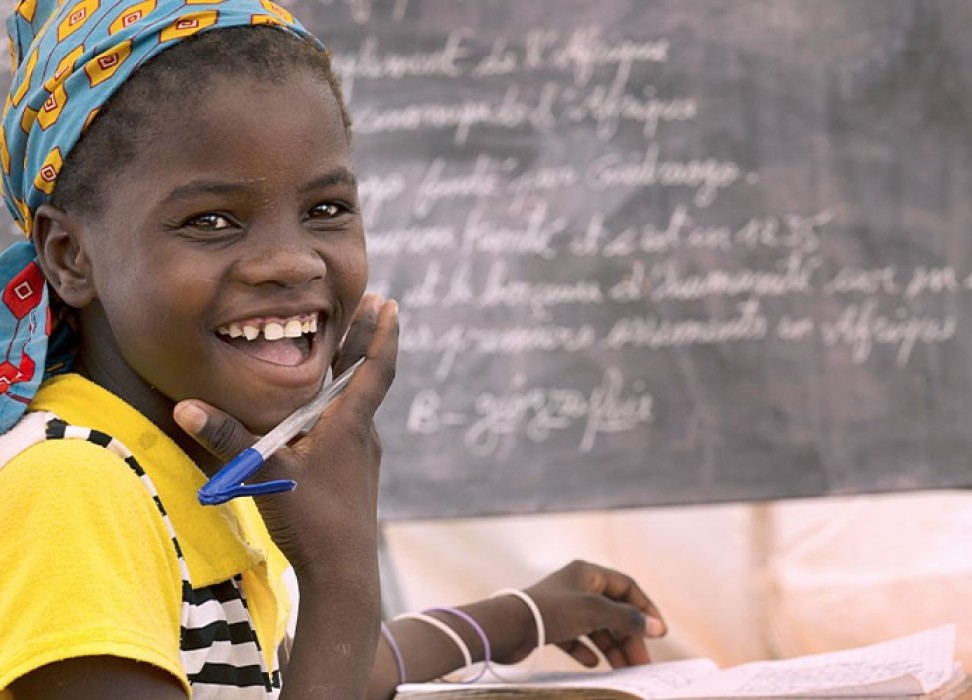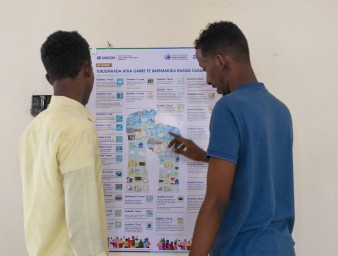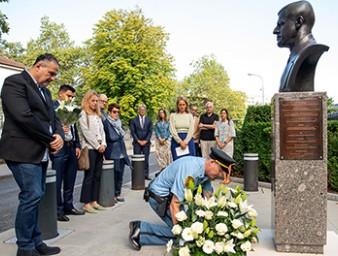Human Rights Committee gives top grades for follow-up to five countries
13 December 2019

In 2019, five countries topped the Human Rights Committee's ranking for the implementation of selected recommendations. Argentina, Burkina Faso, Denmark, Morocco and Sweden received 'A's in the Committee's follow-up review of their action on priority recommendations. The 'A' rating reflects "significant action" taken towards implementing recommendations.
Burkina Faso was commended for its efforts to address human trafficking and child labour through awareness-raising activities. When hearing of the Committee's evaluation, Burkina Faso welcomed the 'A' rating.
"This grade is the recognition of the efforts made by Burkina Faso, in collaboration with civil society organizations, to implement its international obligations linked, in particular, to the recommendations of the treaty bodies and, more precisely, those of the Human Rights Committee," said Dieudonné W. Sougouri, Ambassador and Permanent Representative of Burkina Faso to UN Office in Geneva. "For Burkina Faso, this grade is an invitation to redouble our efforts to strengthen the respect, protection and realisation of all human rights in its territory."
"Burkina Faso reaffirms its readiness to welcome the recommendations of all the treaty bodies and to cooperate with all the mechanisms, for greater effectiveness of human rights in its territory," he added.
Argentina was rated with 'A', noting the decision of the Tucumán Supreme Court to release and acquit "Belén," a young woman accused of terminating her pregnancy, while the practice remains criminalised in that country.
Denmark was rated 'A' for the measures it took to prevent and combat domestic violence, which include the operationalization of a national unit to combat violence in family and intimate relations, and an update to that country's guidelines on inter-relational violent crimes.
Morocco was rated 'A' for the adoption of the law on the national mechanism for the prevention of torture, designating its National Human Rights Council as the operative body.
The Committee also evaluated Sweden's actions to prevent and combat racism, such as the establishment by the National Police Commissioner of a national point of contact on these issues and hate crimes units in the country's three largest cities, and assigned an 'A' rating.
Countries that have ratified the International Covenant on Civil and Political Rights undertake to respect, protect and fulfil a list of civil and political rights. These range from the right to a fair trial, through the right to peaceful assembly, to the right to vote and political participation, to mention only a few examples. These countries periodically report to the Committee on the implementation of their legal obligations under the Covenant.
To date, 173 countries have ratified the Covenant. The countries that report then participate in dialogues with the Committee in Geneva to discuss their performance and any compliance challenges that they face. To assist them to fully comply with the Covenant, the Committee issues recommendations to the countries.
In 2013, to encourage States to act on its recommendations, the Committee adopted a follow-up procedure. According to that procedure, it selects a limited number of recommendations from the full set to be evaluated during the follow-up process. After two to three years following the dialogues, the Committee evaluates the countries' progress on the implementation of these recommendations.
During the follow-up process, which is based on written submissions from the country, civil society organizations and national human rights institutions, the Committee assigns a rating from 'A', largely satisfactory, to 'E', contrary to or reflects rejection of the recommendation. Since 2014, 52 per cent of the follow-up actions taken by States were decided by the Committee to be largely or partially satisfactory ('A' and 'B' ratings).
Marcia V. J. Kran, the expert member of the Committee who serves as the Rapporteur on follow-up to recommendations, emphasized the value of the follow-up process.
"Ultimately, the measure of success of the interaction with the Committee is the extent to which people are able to exercise their civil and political rights," Kran said.
"Implementation of the human rights obligations that States have agreed to under UN treaties is critical in order to ensure the fulfilment of human rights in people's lives. Achieving that goal includes creating ongoing dialogue with States and other stakeholders through the evaluation of human rights implementation," she added.
13 December 2019



